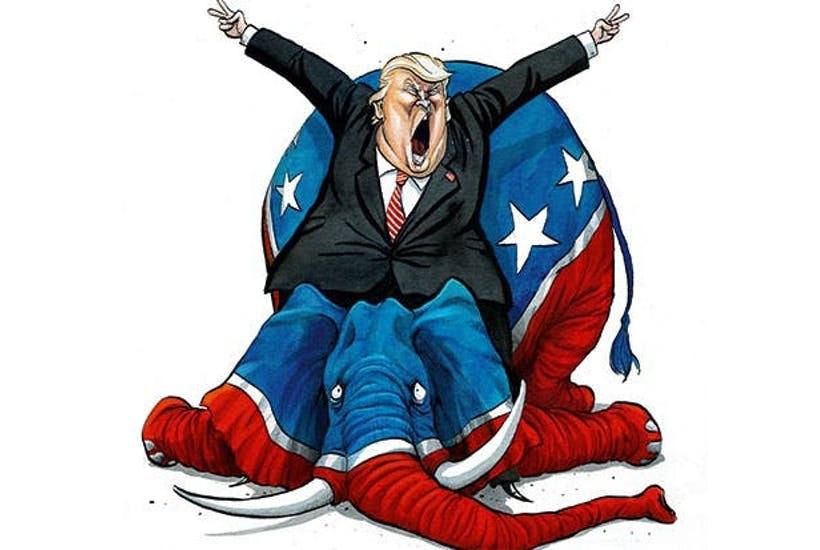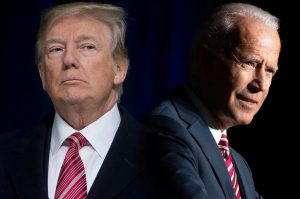‘We ex-communists are the only people on your side who know what it’s all about’, Arthur Koestler declared in The God That Failed, the volume of essays by lapsed communists that appeared in 1949, the year that the Soviet Union exploded an atomic bomb and China went communist. There’s a certain loftiness to Koestler’s statement that can be rather grating, as though the formal badge of entry to opposing the dark side requires having submitted to darkness in the first place. Indeed, at the outset of the cold war, the historian Hugh Trevor-Roper, who never flirted with the left (unlike many of his British contemporaries) expressed his qualms that more than a few of the ex-communists had retained their commissar-like qualities in opposing their former credo. But it’s also the case that they did possess an intuitive grasp of their former faith that eluded those who remained wishfully blind to the horrors of communism.
In a new essay in Esquire, Sam Tanenhaus, the biographer of Whittaker Chambers, who fingered Alger Hiss, a state department official, as part of a Soviet spy ring that both men belonged to, draws upon the God That Failed syndrome to examine the state of the NeverTrump movement. He identifies David Frum, a former speechwriter for George W.Bush and a former fellow at the American Enterprise Institute, as the spiritual leader of the neoconservative opposition to Trump. Tanenhaus begins by depicting a party that Frum held (which I also attended) for the gifted historian Anne Applebaum to celebrate her new book on the Ukrainian famine. There the historian Ronald Radosh reminded Tanenhaus that in 2013 he had met Steve Bannon, who proudly announced that he was a Leninist intent on tearing down the old order. According to Tanenhaus:
‘Today, it is the Never Trumpers who are holding out against “forced collectivisation”—imposed by the leaders of their own party—and feel locked in an epochal struggle, with a great deal riding on the outcome.’
Once upon a time, Frum co-wrote a book about confronting Islamic terrorism with Richard Perle called An End to Evil. Now he sees it in America or, to put it more precisely, the Trump administration, which is why he has written a new book pithily titled Trumpocracy. In explaining Trump, Frum tells Tanenhaus, ‘The problem with the devil’s bargain is that the devil never delivers. That’s the point of the story.’
But is Trump in fact delivering? One of the problems with the neocon scenario is that it ignores the continuities between Trump and modern conservatism, whether the issue is race or taxes or big government. The new conventional wisdom that is emerging on the right suggests that Trump is governing like a traditional conservative. He’s been appointing conservative judges at a record pace. He jettisoned the Paris Accords. Regulations are being rolled back. He’s talking tough about Iran and North Korea. The American embassy is headed to Jerusalem. And with the passage of the tax bill, he’s accomplished a major legislative victory. A failed president? Bah, humbug.
But already renewed ructions among congressional Republicans suggest that this rosiest of scenarios may not pan out. Republican lawmakers are squabbling about a short-term spending bill to avert a government shutdown today as well as about a disaster relief bill. Meanwhile, conservative intellectuals remain at war with one another. The latest example came this week with a fusillade directed at Jennifer Rubin, a neocon blogger for the Washington Post who reviles Trump. Writing in the National Review, Charles C.W. Cooke suggested that Rubin herself is ‘everything she hates about Trump worshippers’—unhinged, hyperbolic, alarmist. Better to judge Trump on a case by case basis, he suggested, than to condemn him tout court. Frum fired back in the Atlantic that conservatism is being irrevocably altered by Trump and cannot survive his presidency intact. As Frum put it, ‘Rubin’s crime is that rather than waking up every morning fresh for each day’s calling of balls and strikes, she carries into her work the memory of the day before. She sees patterns where Cooke sees only incidents. She speaks out even when Cooke deems it prudent to hold his tongue.’
Frum, so to speak, has found his voice. But it is true that many conservatives have become what Tanenhaus diagnoses as part of a nomenklatura that stills its conscience when politically opportune. In this regard, Tanenhaus scores a scoop in revealing that the Wall Street Journal editorial page reportedly suppressed a column detailing Trump’s alleged mob ties. He also notes that an exodus has been taking place at the Journal—former stalwarts such as Robert Messenger, Bret Stephens and Bari Weiss have all departed the paper for new posts at the Weekly Standard or New York Times. Now, like White Russian nobility huddling in Paris after 1917, they are watching as the new Leninists seek to construct their own utopia.


















